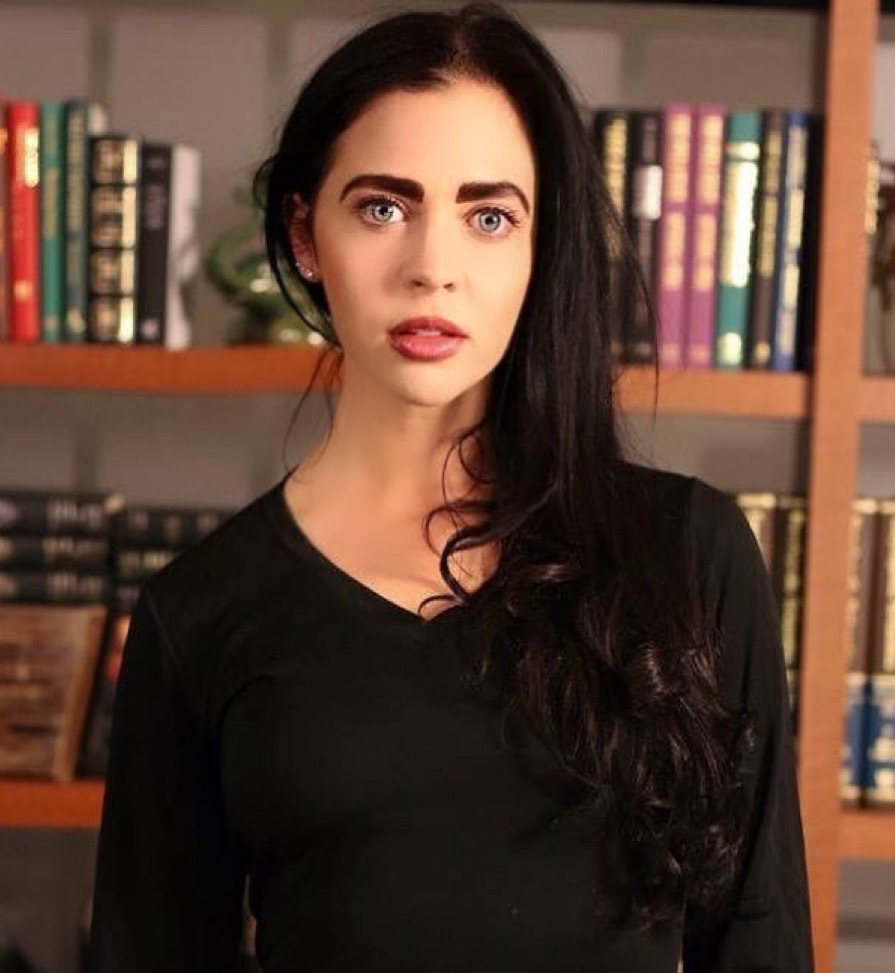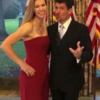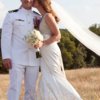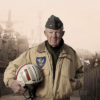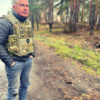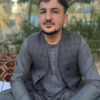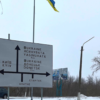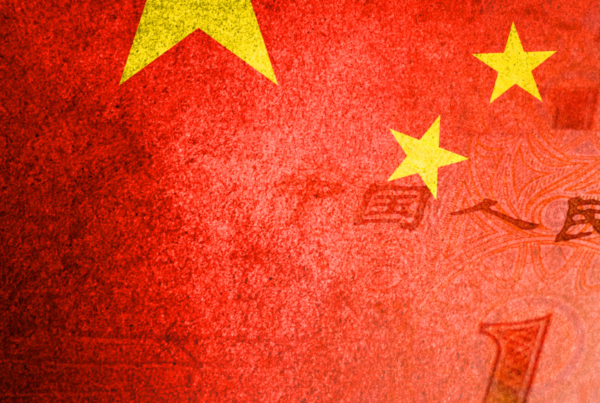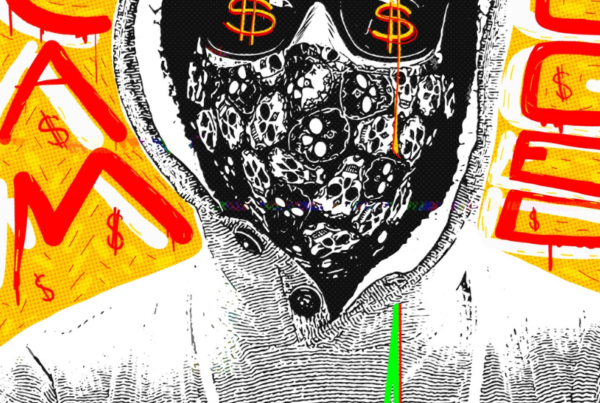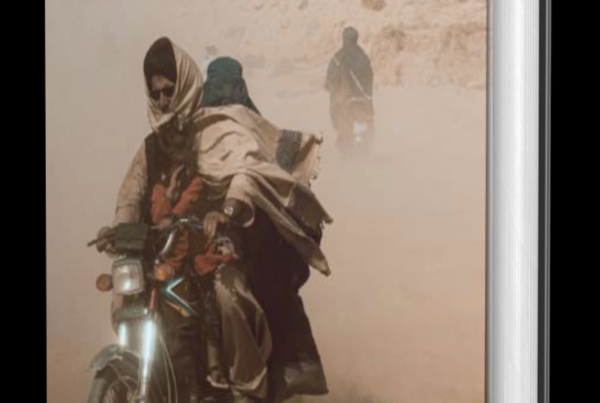Yaromir Bukeev oozes patriotism. Only he isn’t a Ukrainian soldier.
Instead, Yaromir is Russian and has taken up arms to fight the war waged by his fellow countrymen under the iron fist of Vladimir Putin.
He left his homeland more than eight and a half years ago, soon after Moscow annexed Crimea and began backing the separatist conflict in the eastern enclaves of Luhansk and Donetsk. But Yaromir’s antagonism toward the regime festered long before that.
A graduate of a Russian military high school and aviation academy in the early 1980s, Yaromir studied engineering and ran small businesses following the fall of the Soviet Union in 1992, a period he depicts as feeling genuinely free. Only the freedom was to be short-lived.
“It was the year 1999 that Putin came to power. We understood very quickly that a terrorist and gangster and murderer had come to power in Russia,” he continues grimly. “We understood that the worst had happened in Russia.”
An outspoken critic of the longstanding leader, Yaromir – under threat from the Kremlin’s intelligence wing, the FSB – fled across the border and into Ukraine on a bitterly cold February day in 2014, just as Russian aggression was gaining momentum. He first served as a volunteer of the Azov Regiment, a Special Operations Detachment, throughout the first six years of the conflict in the east before joining the Ukrainian Forces in the expanded fighting this year. Nonetheless, it took time to earn the trust of his bordering comrades.
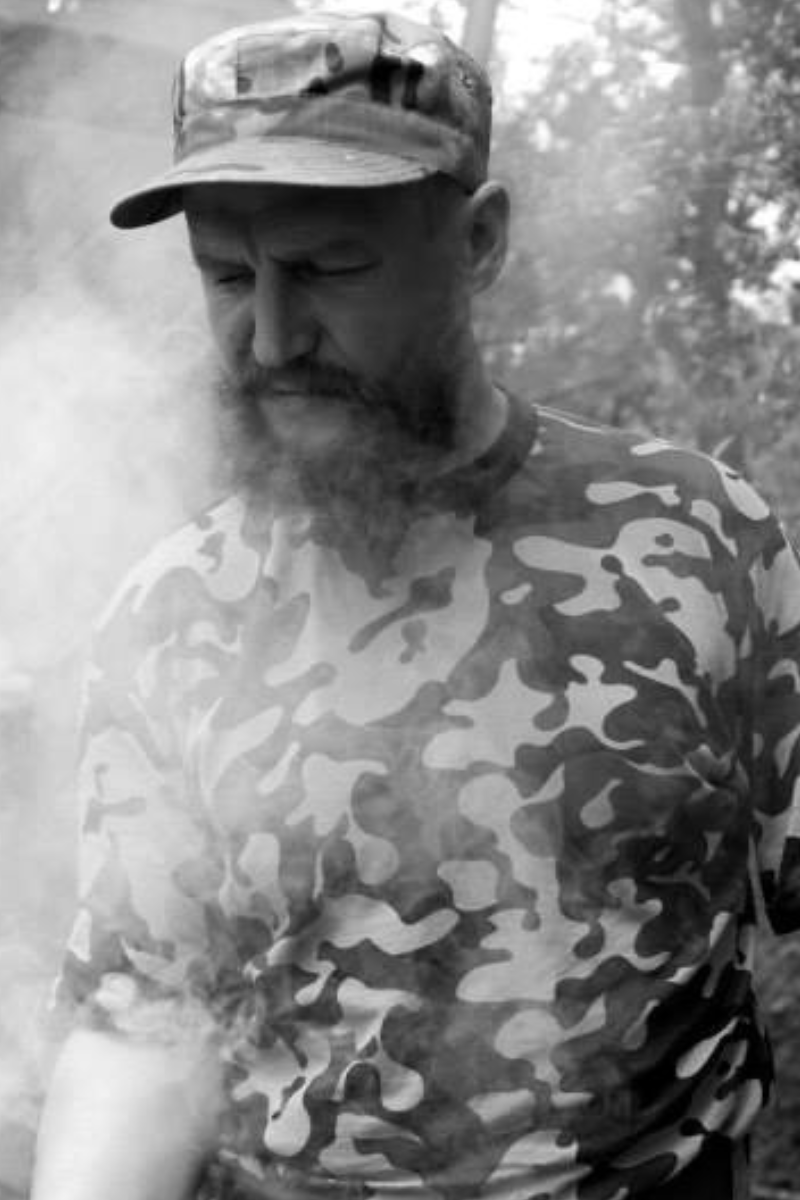
“To join, one should have recommendations from several trusted people; otherwise, you cannot join this fight,” Yaromir explains. “Eventually, I was trusted to go to the frontlines.”
At that point, he surmises, roughly one in 10 Azov fighters were Russian nationals.
And the threats over the years have been lobbed in many more ways than one. Yaromir claims that several Russian volunteer fighters for Ukraine were murdered at the hands of sly intelligence agents, although their deaths were made to look like suicides. The targeting prompted many, including Yaromir, to cross into neighboring EU countries and apply for political asylum. But when the invasion began this year, he and several others decided they could no longer stand by and wait.
“We joined the Territorial Defense Units but lacked weapons at the time. So, we spent three days searching for weapons,” he recounts. “I finally managed to find several guns and a machine gun.”
Yet even with a wealth of experience beneath his belt, little could have prepared the seasoned volunteer for the kinds of butchery he was privy to over the twisted course of 2022. Yaromir carefully describes the absolute decimation of beautiful, historic parks and piled corpses – including children – in what he characterizes as “an operation on cleansing the territory.”
“Dozens of villages and small towns heavily shelled, and civilian homes purposefully destroyed,” he remembers, his voice trailing off.
For those like Yaromir, daily life is permeated by the mundane and the mourning. They often sleep on simple wooden boards in bombed areas, surrounded by cauterized plains and craters deep into the earth. They clean their guns and drink tea in one moment, and in the next, find themselves in firefights and artillery strikes that stretch on for hours, if not days.
However, Yaromir is hardly alone regarding Russian dissidents linking arms with Ukrainians in the protracted war. On another day, I am connected to Oleg Butusin, who remains inside Ukraine with his wife and large family.
Oleg was born in 1971 in Ulan-Ude (Buryatia) and lived in Vladivostok from age two. He studied well, entered the nautical school, and graduated with a degree in navigation.
“I read a lot, and by the mid-1980s, I was a convinced anti-Soviet. I realized that the USSR is not Russia, but anti-Russia, that it is an absolute evil in the world,” he continues. “Then, in the 1990s, I left seafaring and worked privately. I was the owner of a truck and carried out transportation on it, and I also was engaged in farming. The Lord sent me a wife who bore me twelve children. This is a great happiness; they are always with me, hand in hand.”
Oleg strikes me as a profoundly religious and poetic soul who speaks in sacrosanct monologues always connected to a higher calling in his tales of triumph and tribulation.
“I was the village ataman; then I was elected ataman (supreme military commander of the Cossack armies) of the city of Vladivostok. I never hid it, and at every gathering, I said that the main Russophobe is in the Kremlin, and the main enemy of the Russian people are the Kremlin bandits – and it doesn’t matter, Putin, or Lenin, or Stalin,” he says. “I was persecuted, of course. I was tried, and I was given a suspended sentence. But what does the devil want? For us to be afraid. I was never afraid of it. I didn’t give a damn about them at all. I knew that the Lord would keep me and would never leave me. The main thing is never to be afraid of anything. Truth is with us. God is with us.”
In the summer of 2014, while living with his children by the Black Sea, Oleg realized this was his war and had to be on the side of good against evil. So, with the support of his family, they relocated to Ukraine, and he went to meet with the leadership of the “Right Sector,” a well-known Ukrainian nationalist organization.
“I never hid the fact that I am a Russian Orthodox monarchist. And that I can be useful to Ukraine in the fight against Putinism. In January 2015, we were taken to the training ground, and I went to the war zone in February. And in principle, the whole of 2015, I fought,” he asserts. “We approached the enemy, destroyed their roadblocks, raided their positions. But there was no such use of artillery as it is now. Compared to the current war, it was just a kindergarten. It’s just not comparable.”
Despite his dedication to Ukraine, Oleg failed in his efforts to obtain Ukrainian citizenship before the invasion. As a result, he was threatened with deportation even though the Russian Federation had opened a slew of “terrorism” cases against him. However, he remembers dozens of locals who stood up for him in outrage, and he was issued legal residence.
“My two sons had just returned from the Donbas, did not even have time to go on vacation, and were sent at once to strengthen the Belarusian border. But, of course, all this was in the air, although I didn’t want to believe it. We were in our house in the Ivano-Frankivsk region in Western Ukraine.
Explosions awakened us. It was early in the morning, and I went outside and saw a flying rocket,” he recalls. “It cannot be said that it was a shock because we had always been preparing for war. We (had long) gone to play paintball with children, went to training grounds and shooting ranges, and studied military affairs. We knew that sooner or later, this war would come.”
After about a week, Oleg says he was taken to fight in the north of the Kyiv region. He points out that -it seemed the main thing was to defend Kyiv because supposedly the enemy wanted to take it, and not Chernihiv or Kharkiv which he views as a strategic mistake.
“In Kolychivka, our defense was very well organized, and the enemy did not pass there. However, he did not abandon the plan of further encirclement of Chernihiv and decided to break through the defense to the East. There are villages Hrabivka, Budy, Baklanova Muraviyka and Lukashivka. The enemy had already occupied Sloboda, Ivanivka and was four kilometers from Lukashivka,” he explains. “And if you look at the map, it was obvious that the next blow would be inflicted on Lukashivka – to seize the very important Chernihiv-Kulykivka highway then – if they had occupied it, then Chernihiv would have been surrounded.”
Oleg stresses that he has a naval education and could predict bluntly from the map where the enemy would go.
“And for some reason, our military leadership decided otherwise, and therefore all anti-tank crews were located mainly not in Lukashivka, but in other points,” he laments.
Farmers and older women sheltered the Ukrainian fighters as the Russians closed in over the days and weeks ensued. Oleg’s comrades did not want o run away, but the reality was scalding. Villages were bombed by the enemy, some later liberated by Ukrainians, and many never made it out of the firefights alive.
Finally, on April 1, the Ukrainians freed Sloboda, but many of those closest to Oleg were missing.
“I hoped to the last that my guys were alive and either wounded or hiding somewhere. My other son, Grisha, and I ran around all the surrounding villages under shelling, looking for them. They showed their photographs to residents and other soldiers. We hoped to the last,” Oleg details. “We found the corpses of our soldiers here and there. One soldier froze with a Swedish anti-tank weapon, and his leg was tied with a tourniquet. He fought to the end, wounded, but the tank fired at the building, and he died.”
Only the worst was yet to come.
“Then one local told me that he knew where two more were lying,” he ponders, lost in the moment. “I remember that until that moment, I walked very easily among the corpses because I was sure that my children were not among them.”
Sadly, Oleg found his beloved two eldest boys, Roma and Lenya, face down with the dead.
“In 2019, a grenade exploded in Lenya’s right hand, and his thumb had to be sewn back on. And here Lenya lies. I touch his hand and feel this scar. He had a large shell fragment on his back. There were many bullet wounds,” he recounts in staccato. “Roma had a torn stomach and many bullet holes. The helmet lay nearby; the armor plate was all broken. These ceramic armor plates are not designed for long-term resistance. And the path they went to the place of death was strewn with these ceramic fragments.”
For weeks, Oleg says, the village of Lukashivka “smelled of fried meat,” and Russian occupiers spent three weeks burning the bodies of their men.
“There were Belarusians, Buryats and Syrians who did not even know Russian! All this grouping had a Dagestani commander. It is in particular because of these Syrians, in order not to mess with their corpses and not to send them home to Syria, they used these crematoria,” he observes flatly.
There are no hard statistics regarding the number of Russian combatants now on the side of Ukraine. However, the men I talk to insist that the figure is at least well into the hundreds. Many belong to the “Freedom for Russia” legion, a military wing inside the Ukrainian Armed Forces comprised only of Russian nationals. The unit is shadowy, with little known about their size, experience, role or military maneuvers. However, public pictures show fighters donning a patch similar to the Russian flag with the blood red stripe removed from the white and blue.
In many ways, it is symbolic of the conflict wrapped within a conflict that surfaced this year as Ukraine spiraled into a deadly kinetic conflict with its neighboring invaders. Kyiv has also been active in its campaign encouraging Russian troops to defect, offering up to $1 million for those who surrender with a jet or warship and several thousand for smaller arms and equipment.
While the war has brought those on Ukraine’s side triumph, it has also ushered in great tragedy. At least 10,000 Ukrainians are thought to have been killed, with many more thousand missing or gravely wounded. For Russians, the death toll has fared far worse. Analysts estimate more than 15,000 have been killed in combat since February. In the early days, it was believed that many fighting were poorly equipped, inexperienced conscripts duped into entering their neighbor’s terrain under the GUISE of “military drills” to fight against a burgeoning Nazi administration.
However, Yaromir warns the west not to fall blindly into that narrative.
“You can’t trust them,” he cautions. “Even though months have passed, they (Russian soldiers) continue to say the same thing, that they didn’t know anything about what they were coming for. But you cannot trust or believe them; they are saying this when they are captured because those prisoners of war have the opportunity to be exchanged for Ukrainians now imprisoned by the Russians.”
Meanwhile, support for the “special military exercise” (Putin’s government has banned the use of the terms “war” and “invasion” and arrests those who dare use the “fake” descriptors) inside Russia is hard to decipher. Public opinion polls hover at more than 80 percent in favor of Putin’s command, which an intense propaganda campaign has driven. However, it may well be that much inside fear retribution for advocating otherwise.
Still, the bloody battles have triggered almost irreparable clefts through Russian and Ukrainian societies, with many no longer able to communicate with loved ones across borders or even remain silent inside their Moscow-led Mothership.
To fight for Ukraine as Russian no doubt comes with a heavy price tag.
Oleg notes that throughout 2015 and 2016, FSB officers and cops constantly visited his brother, sisters, and mother.
And Yaromir, a father of three children still in his Mothership, has not spoken to his immediate family since May 2016. Instead, he tells me that authorities have contentiously searched their family home, been intensely intimated and pressured over his departure, and even had to change their last names to evade even more profound levels of persecution.
The expenses do not end there.
In June, Oleg was hurriedly driving from one defense position to another in the dead of night – without headlights to conceal the enemy – in the Donbas region when the vehicle crashed into a concrete defensive barrier, crushing his leg.
“And now I am waiting for my official registration in the army. After all, I was not officially registered at all,” he says, not with pity but matter-of-factly. “Now, I am essentially a ‘civilian,’ which, in theory, should not be in a combat zone. It may be beneficial for someone to have people like me who can do all the dirty work for the military, and in case of failure, no one will be held accountable. And for this reason, I have not yet received a single award for all my military deeds. I am not even noted anywhere in the order. I consider this situation unfair, so I need official military status.”
Further, Yaromir has since returned to Lithuania for knee surgery following a severe injury jumping out of a helicopter in the theater of war. Moreover, scores of Russians have since fled to the Lithuanian capital of Vilnius since February, seeking political asylum and playing an influential role in the war using words rather than weapons.
“We have a community here, Russians who support each other and are against this war,” a Russian political analyst who asked only to be identified as Andrii, having escaped Central Russia in the face of “the Kremlin’s aggression” as the war broke out, tells me. “A huge number of Russians have relatives and roots in Ukraine, and for me, and many other Russians, it is simply wild to hear those massacres and destruction ‘turned out to have been committed, and continue being done, ‘for the sake of love for the brotherly Ukrainian the people.’ It’s about as if a maniac tortured, maimed and killed my relative and at the same time told how he was “in love” with her.”
Most Russians I talk to don’t consider themselves in opposition to their country but rather stand against Putin and his government. Yet Andri, for one, does not believe that the bloodshed can be stopped through soft power and pacifism.
“We understand it is simply unrealistic to stop this war with the help of pacifist slogans and even with the help of rational arguments addressed to Vladimir Putin. It seems that the only way is to change the political regime. It seems possible to do this only by force,” he insists. “I am by no means a fanatic and a fiery revolutionary. I understand perfectly well that any cardinal changes mean stress and frustration for millions, the destruction of many destinies saturated with a lot of blood. However, the fact is that this blood has already come.”
And though public and press attention on the Eastern European battle has slowly dimmed over time, the carnage still wages under the full tilt of the summer sun. Much of the fighting has returned to the East, although far more protracted than before the all-out incursion, with the long-term outcome and resolution especially unclear. Russians can concentrate the bulk of their personnel and weaponry into that one dominion, outnumbering Ukrainians sometimes ten to one, and Yaromir highlights it is a significant cause for concern.
“Russian troops strongly outnumber, the Ukrainians need a lot of support from all over the world – artillery vehicles, pickup trucks, supplies for our military positions,” he underscores.
Nevertheless, Yaramir remains adamant that there is only one way this war will end.
“It will be a victory for Ukraine,” he conjectures. “It will be very hard, but a victory for Ukraine is the only way.”
Oleg is somewhat more cryptic in how he sees the conflict drawing to a close.
“The struggle between light and darkness continues. It has been going on throughout the history of mankind. But this war is probably already the one about which it is written in the Apocalypse. I want my children to live, but I see what is happening both in the world and in nature –the seas are drying up, there is no water in the wells, and now there will be problems with this bread,” he adds. “To be honest, analyzing everything happening, I think this is a war to the end. As the Scripture says, ‘And the living will envy the dead. I think this is the last war…”
